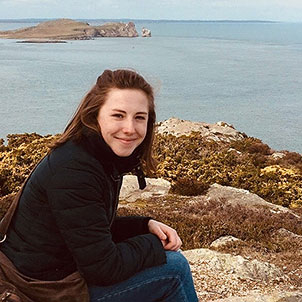Lucy Jupe
Research Officer, Ecosystem Health & Social Dimensions
Contact details

About me
I can trace my passion for wildlife conservation back to my Blue Planet DVD box set, which offered a chance to see the amazing diversity of landscapes and wildlife that existed beyond my patch of busy London. I graduated with a degree in Marine Biology and Coastal Ecology from Plymouth University in 2018, after which I worked as a marine researcher at the British Antarctic Survey and Trinity College Dublin/The Marine Institute. During this time, I became increasingly interested in environmental justice and the application of social science methods in conservation, which led me to my current role as Research Officer in the Ecosystem Health and Social Dimensions Unit at WWT.
My role
I support several projects spanning a range of topics related to people and wetlands, including health and wellbeing, blue carbon, cultural ecosystem services and the campaign to reduce lead ammunition poisoning of wetland wildlife. I use a mix of qualitative and quantitative methods in my research, including participatory research methods like PhotoVoice which aim to empower community members and democratize the research process. I am also a member of WWT’s Diversity, Inclusion and Belonging working group.
Experience and interests
- Participatory research design/facilitation (PhotoVoice)
- Social science methodologies (interviews, questionnaire design)
- Quantitative data analysis (R, QGIS)
- Qualitative data analysis (thematic analysis, NVIVO)
- Meta-analyses and literature reviews
- Fieldwork and ecological data collection
Publications
Jupe, L. L., Bilton, D. T., and Knights, A. M.. 2020. Do differences in developmental mode shape the potential for local adaptation? Ecology 101(3):e02942.
Mason, V.G., Wood, K.A., Jupe, L.L., Burden, A., Skov, M.W. 2022. Saltmarsh Blue Carbon in UK and NW Europe – evidence synthesis for a UK Saltmarsh Carbon Code. Report to the Natural Environment Investment Readiness Fund. UK Centre for Ecology & Hydrology, Bangor. 36pp
Return to meet the team